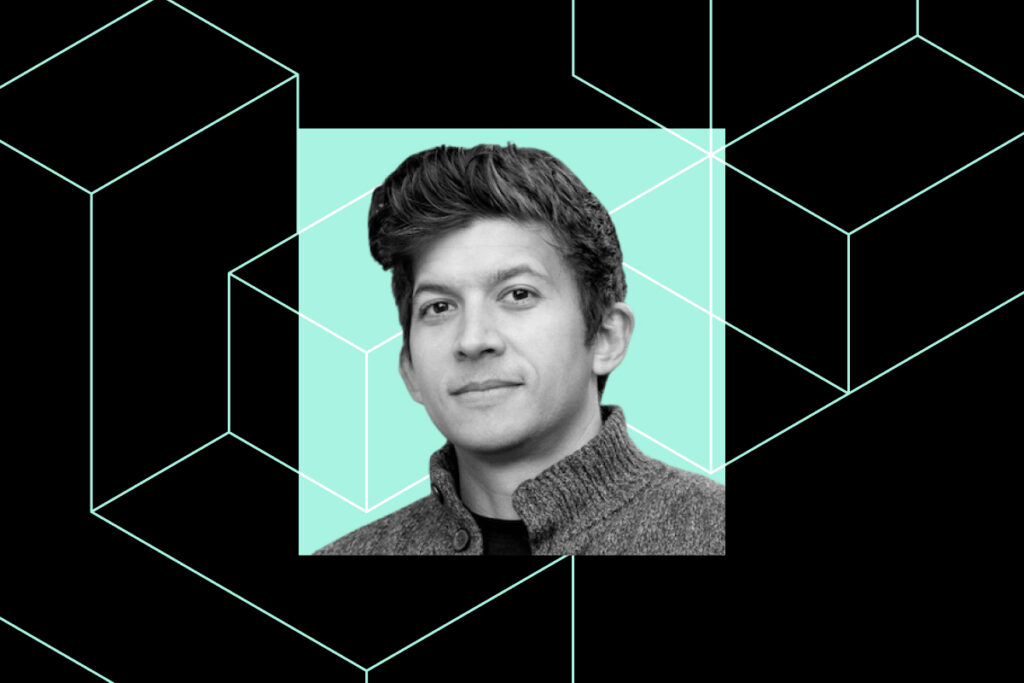Blog Categories
- Appliances Four
- Athletic Seating
- Auto Helpers
- Automated Stock Rooms
- Chocolate Four
- CuraFlo
- Damaged Goods Dating
- Flood Insurance Four
- Game Addict
- Hi Tech Pest Control
- HVAC Four
- Medical Labels Four
- Mental Health Four
- National CWS
- Promotional Ideas
- Seguros Lara Insurance
- Stem Cell Worx
- The Hidden Truth
- The Last Refuge
- The Mozilla Blog
- Video Editing Four
- Web Design Dev
- Website Development Four
- Windows Blog
Advancing the future of the internet with Adam Bouhenguel

More than ever, we need a movement to ensure the internet remains a force for good. This post introduces the Mozilla Internet Ecosystem (MIECO) program, which fuels this movement by supporting people who are looking to advance a more human-centered internet. With MIECO, Mozilla is looking to foster a new era of internet innovation that moves away from “fast and breaking things” and into a more purposeful, collaborative effort that includes voices and perspectives from many different companies and organizations.
Today, we’re highlighting the work of Adam Bouhenguel, who has partnered with Mozilla to look for new ways to build ecosystems that support builders working on the next generation of the web.
Adam Bouhenguel has been building things for a long time.
“As a kid, I would go to museums and fairs and see machines that people had built, or reproductions of famous machines throughout history, and then I would go home and build them out of Legos,” Adam said of his childhood in South Florida.
Once, a friend told him that their cousin built games on calculators, so Adam carried around programming books until he learned how to program. “I spent a lot of time writing the things that I wanted to play,” Adam recalled. “So that was always a strong motivator for me.”
Adam participated in programming and math competitions in high school. Before graduating, he interned at Motorola’s robotics group, where he developed software that ended up shipping with the company’s phones. Adam went on to attend MIT, during which he continued to work for Motorola.
“I realized how powerful tools can be,” Adam said. “If you have the right tools and the right ideas about what those tools should do, you can get much farther than you otherwise would.”
Adam’s love of technology and building found an early home at YCombinator in 2007, where he launched his first company with a goal of simplifying the process of building software for mobile phones. At the time, the iPhone had yet to be announced, and Adam was already thinking about ways to make things easier for creators and developers — a mission that he’s continued working on over the past 15 years.
Today, Adam is using his experience as founder and community advocate to work with Mozilla on new ways to support builders, researchers, and individuals who are ready to be part of a larger movement for change in the way that we build the internet.
When Imo Udom joined Mozilla as the senior vice president of innovation towards the end of 2021, he knew that building a future home for innovation that could expand on the growth of Mozilla’s past 25 years would require new models for thinking about the ways that we work together. In late 2022, Mozilla launched the inaugural cohort of the Mozilla Internet Ecosystem (MIECO) program, where Imo worked closely with Adam to understand the landscape that researchers, computer scientists, and creators were facing and identifying ways to support the changing dynamics of building technology. MIECO is an opportunity to shift the way that we think about building software from a single corporate model to one that is grounded in community and open collaboration.
Exploring new ways of collaborating is a theme throughout Adam’s work. His current MIECO projects, which include the Open Retrospective Contributor Agreement (ORCA), Metered.dev, and Research Portfolio, all seek to give developers and researchers new tools to share and iterate on their work. As more of the world gains access to the internet, Adam sees a need for different models for attribution and sharing in the value generated by different projects and ideas.
ORCA, which allows open source project maintainers to fund contributors, is just one example of an experimental new approach that may encourage more organizations and individuals to work in the open. Making sure that people’s respective work is acknowledged and valued, Adam says, will encourage innovation and translate to better products in the market. While ORCA is in its infancy, it shows promise in helping people shift their thinking about what the future of compensation might look for within technological ecosystems.
Adam believes that making it easier for developers to monetize their work will lead to more sharing of ideas, with the ultimate goal of creating better solutions for some of the most challenging problems that we’re facing as a society today. With that goal in mind, he created Metered.dev, a platform for developers to easily publish and charge for the software that they’re creating, and Research Portfolio, a way for researchers to record and reward the influential work that has shaped their own thinking.
Making sure that people’s respective work is acknowledged and valued, Adam said, will encourage innovation and translate to better products in the market.
Adam hopes that ultimately, people are inspired to think deeper about the software they choose to use.
“We’ll get to see what things are based on, what they’re inspired by,” Adam said. “We can give credit to these ideas that become software that we depend on and benefit from.”
The post Advancing the future of the internet with Adam Bouhenguel appeared first on The Mozilla Blog.
Re Posted From: Advancing the future of the internet with Adam Bouhenguel

More than ever, we need a movement to ensure the internet remains a force for good. This post introduces the Mozilla Internet Ecosystem (MIECO) program, which fuels this movement by supporting people who are looking to advance a more human-centered internet. With MIECO, Mozilla is looking to foster a new era of internet innovation that moves away from “fast and breaking things” and into a more purposeful, collaborative effort that includes voices and perspectives from many different companies and organizations.
Today, we’re highlighting the work of Adam Bouhenguel, who has partnered with Mozilla to look for new ways to build ecosystems that support builders working on the next generation of the web.
Adam Bouhenguel has been building things for a long time.
“As a kid, I would go to museums and fairs and see machines that people had built, or reproductions of famous machines throughout history, and then I would go home and build them out of Legos,” Adam said of his childhood in South Florida.
Once, a friend told him that their cousin built games on calculators, so Adam carried around programming books until he learned how to program. “I spent a lot of time writing the things that I wanted to play,” Adam recalled. “So that was always a strong motivator for me.”
Adam participated in programming and math competitions in high school. Before graduating, he interned at Motorola’s robotics group, where he developed software that ended up shipping with the company’s phones. Adam went on to attend MIT, during which he continued to work for Motorola.
“I realized how powerful tools can be,” Adam said. “If you have the right tools and the right ideas about what those tools should do, you can get much farther than you otherwise would.”
Adam’s love of technology and building found an early home at YCombinator in 2007, where he launched his first company with a goal of simplifying the process of building software for mobile phones. At the time, the iPhone had yet to be announced, and Adam was already thinking about ways to make things easier for creators and developers — a mission that he’s continued working on over the past 15 years.
Today, Adam is using his experience as founder and community advocate to work with Mozilla on new ways to support builders, researchers, and individuals who are ready to be part of a larger movement for change in the way that we build the internet.
When Imo Udom joined Mozilla as the senior vice president of innovation towards the end of 2021, he knew that building a future home for innovation that could expand on the growth of Mozilla’s past 25 years would require new models for thinking about the ways that we work together. In late 2022, Mozilla launched the inaugural cohort of the Mozilla Internet Ecosystem (MIECO) program, where Imo worked closely with Adam to understand the landscape that researchers, computer scientists, and creators were facing and identifying ways to support the changing dynamics of building technology. MIECO is an opportunity to shift the way that we think about building software from a single corporate model to one that is grounded in community and open collaboration.
Exploring new ways of collaborating is a theme throughout Adam’s work. His current MIECO projects, which include the Open Retrospective Contributor Agreement (ORCA), Metered.dev, and Research Portfolio, all seek to give developers and researchers new tools to share and iterate on their work. As more of the world gains access to the internet, Adam sees a need for different models for attribution and sharing in the value generated by different projects and ideas.
ORCA, which allows open source project maintainers to fund contributors, is just one example of an experimental new approach that may encourage more organizations and individuals to work in the open. Making sure that people’s respective work is acknowledged and valued, Adam says, will encourage innovation and translate to better products in the market. While ORCA is in its infancy, it shows promise in helping people shift their thinking about what the future of compensation might look for within technological ecosystems.
Adam believes that making it easier for developers to monetize their work will lead to more sharing of ideas, with the ultimate goal of creating better solutions for some of the most challenging problems that we’re facing as a society today. With that goal in mind, he created Metered.dev, a platform for developers to easily publish and charge for the software that they’re creating, and Research Portfolio, a way for researchers to record and reward the influential work that has shaped their own thinking.
Making sure that people’s respective work is acknowledged and valued, Adam said, will encourage innovation and translate to better products in the market.
Adam hopes that ultimately, people are inspired to think deeper about the software they choose to use.
“We’ll get to see what things are based on, what they’re inspired by,” Adam said. “We can give credit to these ideas that become software that we depend on and benefit from.”
The post Advancing the future of the internet with Adam Bouhenguel appeared first on The Mozilla Blog.
Re Posted From: Advancing the future of the internet with Adam Bouhenguel

